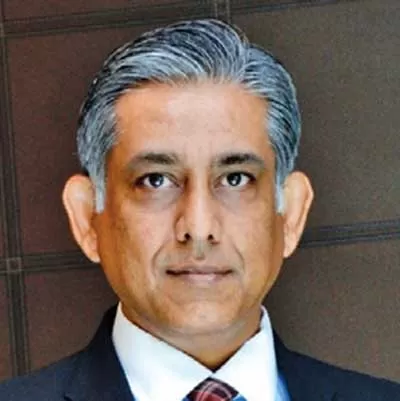In today's competitive and fast-paced business environment, cost control and project coordination are critical to the success of any engineering project. Effective cost management ensures that projects are completed within the allocated budget, while seamless coordination guarantees that all teams and stakeholders work harmoniously towards achieving project goals. We have a legacy of delivering complex projects across diverse sectors and have honed strategies to ensure both cost efficiency and smooth coordination. This article delves into our insights and action plans to manage the cost and coordination across projects.
Pillars of cost control
Cost control is a multi-faceted process that requires careful planning and precise execution. We follow several key principles to manage costs effectively, which serve as essential guidelines for maintaining budgetary discipline.
Scope clarity and accountability (RACI Matrix): Clear scope definition is fundamental to cost control. Ambiguities in the scope of work can lead to misunderstandings, delays, and cost overruns. To mitigate these risks, we employ comprehensive scope clarity measures from the very outset of a project. These measures include detailed inputs and outputs for each deliverable, along with clearly defined timelines and key milestones. We use the Responsible, Accountable, Consulted, Informed (RACI) matrix to define roles and responsibilities. The RACI matrix improves decision-making, ensures accountability, and establishes clear communication. It prevents confusion over task ownership, reduces overlaps, and ensures that resources are utilised efficiently, preventing unnecessary expenses from duplicated efforts. With well-defined roles, it becomes easier to avoid unauthorised changes that can inflate costs. Accountability ensures that only approved work is completed, preventing cost overruns due to confusion or unauthorised tasks.
Estimation and quantification of scope: Accurate estimation is a crucial pillar of cost control. We utilise detailed scope quantification and precise estimations backed by historical data, market trends, and industry standards. Proper estimation prevents both under- and over utilisation of resources, ensuring that human and technical resources are allocated efficiently. This helps in accurately predicting the duration of tasks, building realistic timelines, and setting achievable milestones.
Clear terms and conditions are vital to effective cost control. In our projects, contracts are drafted with well-defined expectations regarding deliverables, payments, and risk management. These terms ensure that all parties are aligned on how risks will be managed and who is responsible for addressing risk events. This proactive risk management approach helps maintain smooth project execution and reduces unforeseen expenses.
Detailed project planning: Effective cost control begins with meticulous project planning. Our project execution model includes key components such as accurate estimation, scope quantification, and clear terms and conditions. This model ensures that project planning is comprehensive, forming a solid foundation
for both cost control and successful delivery.
A well-structured Work Breakdown Structure (WBS) is an essential part of our planning process. By breaking the project into smaller, manageable tasks, each with a defined scope, we align resources, costs, and timelines with the project's overall objectives. This granular approach prevents scope creep, ensuring all stakeholders understand what is included and what is excluded from the project. The WBS allows for effective resource alignment, helping avoid cost overruns due to resource misallocation or missed deadlines.
Value engineering: We integrate value engineering into the project lifecycle to achieve cost efficiency without compromising quality. Through systematic evaluation of design alternatives, the team identifies solutions that offer the best value across three key dimensions: cost, time, and quality—referred to as the Customer Value Triad (CVT). This structured approach optimises functions, materials, and methods to ensure all solutions meet client requirements and regulatory standards.
The CVT ensures:
Quality: Attention to detail ensures deliverables are error-free, preventing costly revisions.
Timeline: Projects are completed within the agreed-upon schedules, avoiding delays.
Cost: Consistently delivering optimised designs and often providing cost savings reduce the client's original capital expenditure.
Real-time monitoring and control: Continuous monitoring is essential to keep costs in check once a project is underway. We use advanced project management software to track project progress and expenditures in real time. Digital dashboards provide up-to-date information, enabling teams to identify and correct deviations early on. Our Project Management Consultancy (PMC) Business Unit plays a vital role in managing project finances, conducting risk assessments, and providing real-time insights into potential cost escalations. Regular financial health checks and comprehensive reporting mechanisms keep all stakeholders informed, ensuring no surprises emerge during project execution.
Streamlined coordination
for success
Effective coordination across multiple stakeholders, including clients, contractors, and internal teams, is essential for project success. We emphasise on integrated project delivery and advanced digital solutions to streamline coordination and ensure that all stakeholders are aligned.
Integrated teams: Our integrated project delivery model ensures that cross-functional teams work collaboratively. Breaking down silos between departments—such as design, procurement, and construction—ensures
that all stakeholders remain aligned on project objectives
and timelines.
Central to this coordination is the Project Manager, who serves as the key point of communication, ensuring smooth collaboration between all parties involved. This prevents delays that could result from miscommunication or misaligned expectations.
SmartSite app: A key innovation in our project management toolkit is our SmartSite app, designed to provide real-time updates and enhance coordination across all project teams. This app enables project managers, site engineers, and stakeholders to access critical project information from anywhere, ensuring improved visibility into project progress. SmartSite app allows teams to report issues, log inspections, track material deliveries, and share updates in real time. This level of transparency and immediacy improves decision-making, minimises delays, and helps mitigate potential cost escalations, ensuring
projects stay on schedule
and within the budget.
Digital and advanced technology solutions: Our Digital and Advanced Technology Business Unit offers cutting-edge solutions such as Building Information Modelling (BIM) and cloud-based collaboration platforms, allowing teams to visualise project progress, resolve design conflicts, and implement real-time updates accessible to all stakeholders. These solutions enhance coordination, reduce errors, and minimise delays, contributing to cost control.
Action plans for
managing costsRisk management and contingency planning: A significant emphasis on risk management is part of the cost control strategy. It is through thorough risk assessments at every phase that potential cost escalators—such as material price fluctuations, labour shortages, or regulatory delays—are identified early. Contingency plans are incorporated to allow for flexibility in budgeting, ensuring the project can
adapt to unforeseen
challenges without significant cost overruns.
Cross-industry learning and application: One of our unique strengths is the ability to transfer learning across industries. For instance, cost control methods in complex industrial projects like oil refineries or chemical plants can be adapted for significant infrastructure developments. By maintaining a repository of best practices and lessons learned, TCE ensures that cost control and coordination measures are continuously improved and customised for each new project.
Collaboration with clients and stakeholders: Regular meetings, transparent reporting, and inclusive decision-making processes ensure that cost control measures align with client expectations. By involving key stakeholders early, TCE gathers feedback and makes adjustments without disrupting project budgets or timelines.
Cost control and coordination are essential to the success of any project, and we have demonstrated our expertise in these areas across various sectors. Through value engineering, real-time monitoring, integrated teams, and advanced digital tools such as the SmartSite app, we ensure that projects are delivered on time and within the budget. By combining foresight, experience, and collaboration, we continue to set new benchmarks in project execution, helping clients achieve their objectives while optimising both cost and efficiency. As we continue to evolve, our commitment to improving cost control and coordination will remain central to delivering world-class engineering solutions in
an increasingly complex
global market.
About the author
Amit Sharma, MD and CEO, Tata Consulting Engineers, is an experienced leader in engineering and design, with over 28 years of global experience. He holds a degree in Mechanical Engineering from the National Institute of Technology, Surat, and is also an alumnus of Arizona State University.






















